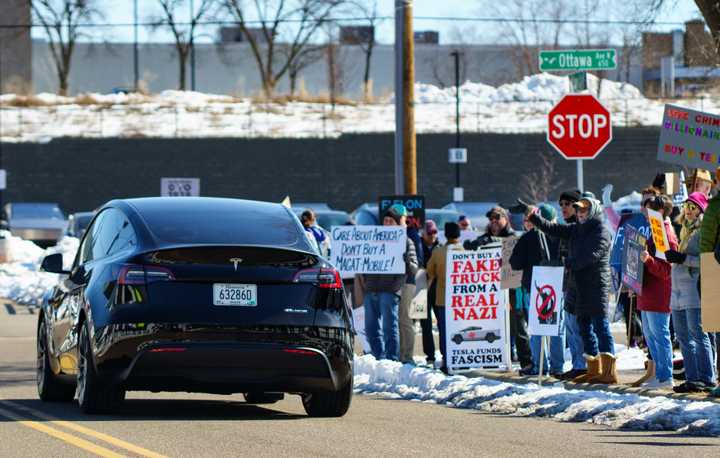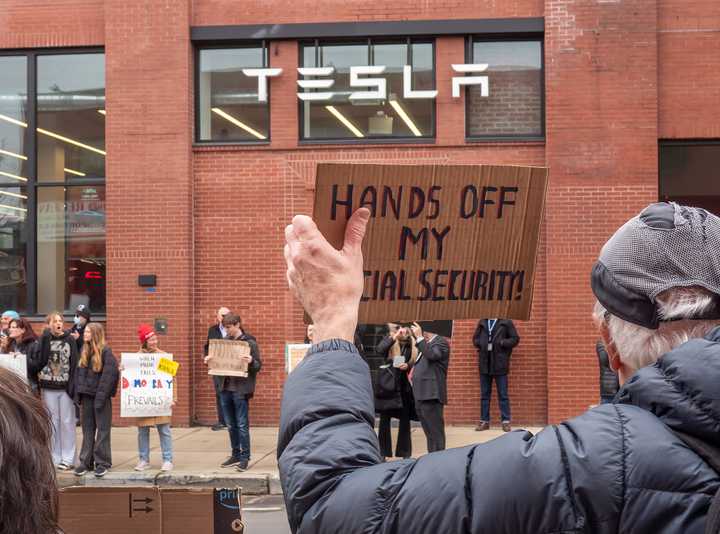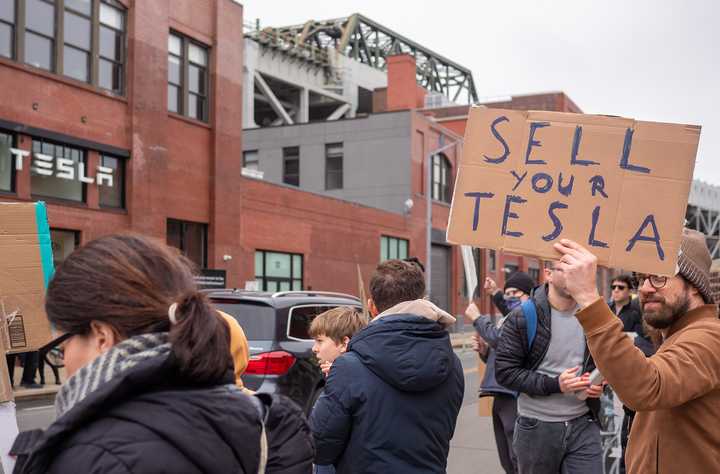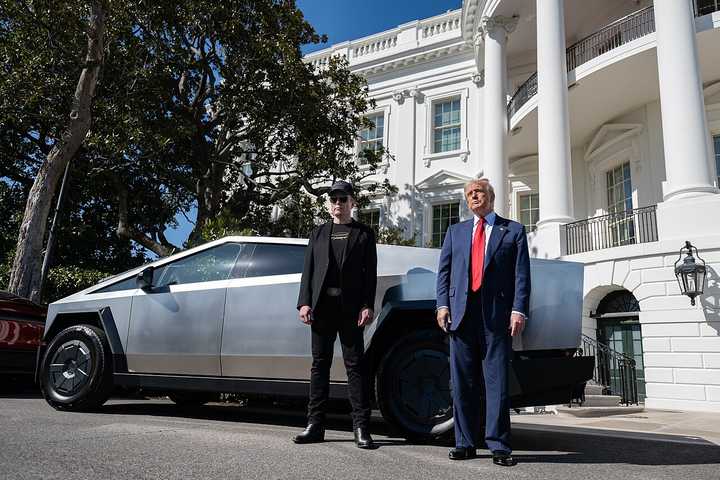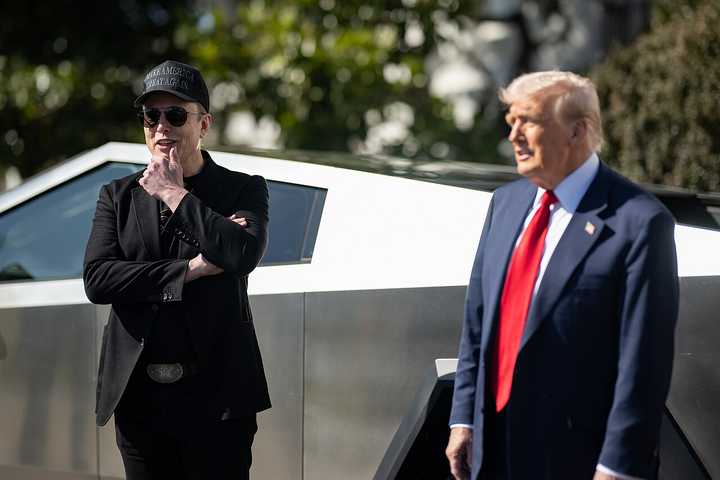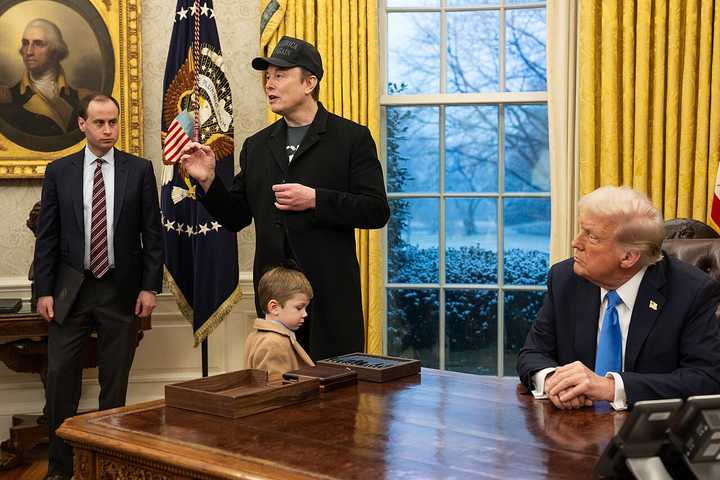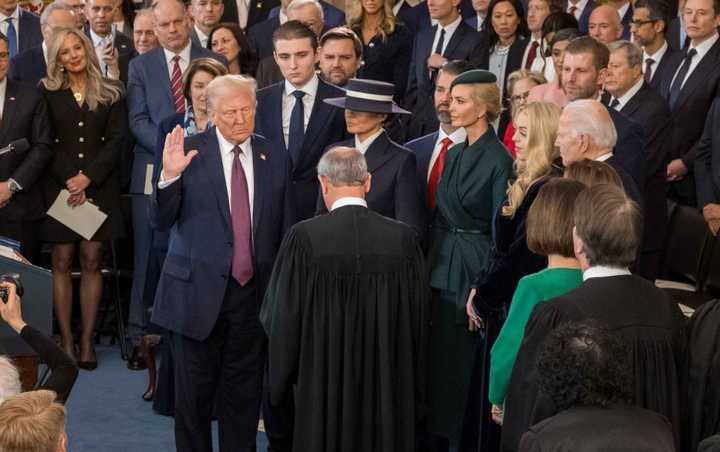March has marked the highest-ever share of Tesla trade-ins toward new or used purchases at dealerships for other automakers, according to car shopping website Edmunds. The site, which receives more than 20 million monthly views, said interest in Tesla's brand is dipping and consumer loyalty is weakening.
Tesla's share of vehicle trade-ins from model year 2017 or later remained steady throughout 2024, starting at 0.5 percent in January and ending at 0.8 percent in December. That share has risen sharply in 2025, with Teslas now making up 1.4 percent of all trade-ins in March.
The trade-in surge coincides with the first two months of President Donald Trump's return to the White House. Musk has served as an advisor to Trump and de facto leader of the Department of Government Efficiency, an organization tasked with gutting federal agencies.
Most of the traded-in Teslas have been swapped for other electric vehicles.
So far in 2025, EVs make up eight of the top 10 most-purchased new vehicles following a Tesla trade-in at a dealership. On the used side, many former Tesla owners are still buying Teslas, with the Model Y, Model S, and Model X topping the list.
Still, overall shopper interest in Tesla is declining. The company's new vehicle consideration on Edmunds fell to 1.8 percent in February — its lowest point in more than two years.
Other electric vehicle makers may benefit from Tesla's many controversies.
"These shifts in Tesla consumer sentiment could create an opportunity for legacy automakers and EV startups to gain ground," said Jessica Caldwell, head of insights at Edmunds. "As Tesla brand loyalty and interest wavers, those offering competitive pricing, new technology, or simply less controversy could capture defecting Tesla owners and first-time EV buyers."
Reverse cross-shopping, which tracks how often shoppers consider a Tesla after looking at another brand first, is also down sharply across key models like the Model Y.
Tesla’s visibility on competitor cross-shopping lists has dropped as well. In February 2024, Tesla appeared on 68 competitors' top-10 lists but that number was down to 32 one year later.
Caldwell said financial incentives like the federal EV tax credit have helped keep sales moving but potential owners seem to be turning away from Tesla.
"While these financial incentives may be enough to attract new buyers in the short term, brand loyalty is becoming a bigger question mark," said Caldwell, "as factors such as Elon Musk's increasing public involvement in government, Tesla depreciation concerns and its increased saturation in major metro areas leave some longtime owners feeling disconnected from the brand.
"With more Teslas on the road than ever, the brand's initial street cred may be eroding for some early adopters who once prized its vehicles as a status symbol."
Musk and Tesla have faced massive protests since Trump's election. The "Tesla Takedown" boycott aims to punish the company for Musk's far-right policies and massive federal layoffs.
To avoid harassment or vandalism, some Tesla owners have sold their vehicles or disguised them with logos from other automakers. Others have placed anti-Musk bumper stickers on their cars including "Elon killed my resale value" and "I Bought This Before We Knew Elon Was Crazy."
Caldwell said many owners who can't trade in their Tesla may have no choice but to keep it.
"The reality is many consumers are not in a financial position to replace a newly purchased vehicle immediately — especially in today's market, where used EVs face significant depreciation compared to their [gas-powered] counterparts," she said. "Unlike switching smartphone brands or streaming services, replacing a car is a major financial decision, and even the most disillusioned Tesla owners will likely hold onto their vehicles out of necessity."
Tesla is also facing many safety concerns.
In March, the company recalled virtually all Cybertrucks because the exterior trim panels could fall off while driving. That followed a February recall of more than 376,000 vehicles and an ongoing investigation into Tesla's remote-driving feature, "Actually Smart Summon," which has been linked to several crashes.
Tesla's stock has also lost all of its post-election gains. Shares in the company were worth $235 when trading opened on Friday, Mar. 21, cut in half from the all-time high of around $480 in mid-December 2024.
A Morgan Stanley investor survey found that 85 percent of respondents believed Musk's political power in the Trump administration has hurt Tesla's business.
Click here to follow Daily Voice Allentown and receive free news updates.
